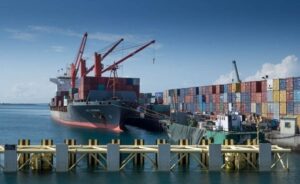This is not very far from estimates of around 60 million in the weeks and months leading up to the census.
What is mind-blowing, however, is the pace at which Tanzania’s population has been growing over the years.
The first post-independence population held in 1967 established that Tanzania’s population back then was around 12.3 million, and had increased to about 45 million ten years ago.
The increase of 16.8 million in the last decade represents an annual growth of 3.2 percent.
At this rate, Tanzania’s population is projected to increase to about 68 million by 2025, and hit a staggering 151 million by 2050, which is a mere 28 years away.
The rate of population growth in Tanzania is among the fastest in the world, and this has been common knowledge for many years now.
Not surprisingly, President Samia Suluhu Hassan voiced her concern when she unveiled the results in Dodoma.
The pace at which the population is growing puts tremendous pressure on key natural resources, which are either fixed or finite.
It should also be noted that delivery of social services such as health and education has not been keeping pace with population growth in recent decades. There is already haphazard expansion of urban areas in the country, and Tanzania’s commercial capital, Dar es Salaam, is among the fastest growing cities in the world.
There are no prices for guessing that the situation will only get worse if the trend continues.
The government has its work cut out, as it is highly unlikely that the population growth with slow down in the foreseeable future.
Tanzanians need to be aware of the adverse effects unrestrained population growth, and so that they take collective responsibility when push comes to shove.
It’s food for thought
The global food situation is not very reassuring, with a child dying of hunger every 15 seconds, and a billion people going to bed hungry daily. One in every nine people is chronically hungry, according to the WFP.
It is food for thought, particularly in Tanzania, where around 48 million people, or 80 per cent of the total population, are dependent on mainly subsistence agriculture for their livelihood.
More than 40 per cent of the population lives in chronic food-deficit regions where irregular rainfall causes recurring food shortages.
It is time for sober reflection. Since independence, agriculture has been touted as the mainstay of the country’s economy, but, sadly, the situation on the ground does not reflect the rhetoric that has been ringing in Tanzanians’ ears for over six decades.
The threat of hunger will continue to loom large if comprehensive measures are not taken to completely transform our rain-dependent agriculture.
Share this news
This Year’s Most Read News Stories

Africa: Rwanda Gets a Grip Of Marburg, But Mpox ‘Not Yet Under Control’

Monrovia — The Rwanda Minister of State responsible for Health, Dr. Yvan Butera, cautioned that while the country is beginning to see positive signals in its fight against the Marburg virus, the outbreak is “not yet over”. He, however, expressed hope that “we are headed in that direction”. The minister said the epidemiology trend, since the disease was first discovered in the country more than a month ago, is moving towards fewer cases.
Dr. Butera, who was giving updates during an online briefing yesterday, said in the past two weeks, only two deaths were recorded while 14 people recovered from the disease. He said Rwanda was expanding its testing capacity with 16,000 people already inoculated against the disease.
The priority right now, Butera said, is “rapid testing and detection”.
Marburg is a highly virulent disease transmitted through human-to-human contact or contact with an infected animal. The fatality rate of cases, which has varied over the period, is more than 50%, according to the World Health Organization. WHO said the highest number of new confirmed cases in Rwanda were reported in the first two weeks of the outbreak. There’s been a “sharp decline” in the last few weeks, with the country now tackling over 60 cases.
At Thursday’s briefing, a senior official of the Africa Centers for Disease Control, Dr. Ngashi Ngongo, said mpox – the other infectious disease outbreak that countries in the region are fighting – was been reported in 19 countries, with Mauritius being the latest country to confirm a case. He said although no new cases have been recorded in recent weeks in several countries where outbreaks occurred previously – including Cameroon, South Africa, Guinea, and Gabon – Uganda confirmed its first Mpox death. This, he said, is one of two fatalities reported outside Central Africa.
Dr. Ngashi revealed that there was an increase in cases in Liberia and Uganda. He said mpox cases were still on an upward trend.
“The situation is not yet under control.”
Source: allafrica.com

Zanzibar: Containers and dhows carrying alcohol stuck at Malindi Port
ZMMI, Scotch Store and One Stop Company have filed contempt of court case against Nicholas Eshalin, the chief executive officer of the Zanzibar Multipurpose TerminalContinue Reading

‘Sovereignty alone won’t solve Zanzibar economic woes’
The ruling party in Zanzibar on Monday , March 13, responded to growing demands for full autonomy in the Islands, saying sovereignty doesn’t guarantee economic strength.Continue Reading












